The 2021 unconference featured participant-led sessions analyzing the current state of open scholarship practice and interactive hackathons seeking solutions to identified problems. Participants assessed barriers to adoption of open scholarship practices unique to the education community and brainstormed strategies for promoting greater awareness.
The unconference included engaging plenary sessions to orient attendees to open scholarship and introduce tools and best practices for open research in education. Deep dives into key principles of open scholarship provided detailed guidance for education researchers.
Links to all unconference information and resources are available here. To view the full unconference schedule of events, please visit bit.ly/STEMunconferenceProgram.
Questions? Contact Marcy Reedy at marcy@cos.io.
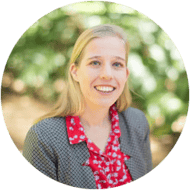
Deep Dive into Open Scholarship: Data, Materials, and Code Transparency
Willa Van Dijk
In this deep dive session, I discussed how transparency with data, materials, and code is beneficial for educational research and education researchers. I illustrated these points by sharing experiences with transparency that were crucial to my success. I then shifted gears and provided tips and tricks for planning a new research project with transparency in mind, including attention to potential pitfalls, and also discuss adapting materials from previous projects to share.
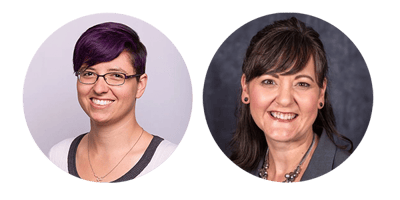 Deep Dive into Open Scholarship: Preregistration and Registered Reports
Deep Dive into Open Scholarship: Preregistration and Registered Reports
Amanda Montoya and Karen Rambo-Hernandez
In this deep dive session, we introduced the basics of pre-registration and registered reports: two methods for creating a permanent record of a research plan prior to conducting data collection. We discussed the conceptual similarities and practical differences between pre-registration and registered reports. We provided some practical advice from our own experiences using these practices in our own research labs and resources available for researchers interested in using these approaches. Finally, we ended with questions and discussion about adopting these practices and unique considerations for implementing these practices in education research.
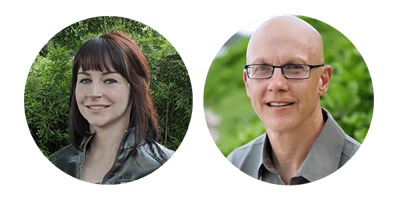 Deep Dive into Open Scholarship: Preprints and OA
Deep Dive into Open Scholarship: Preprints and OA
Stacy Shaw and Bryan Cook
In this deep dive session, we discussed the current model of scholarly publishing, and highlighted the challenges and limitations of this model of research dissemination. We then focused on the value of open access and elaborated on different open access levels (Gold, Bronze, and Green), before discussing how preprints/postprints may be leveraged to promote open access.
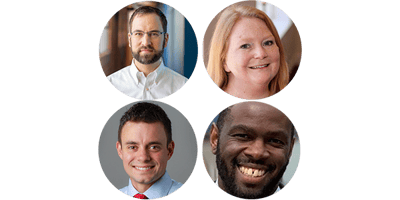 Deep Dive into Open Scholarship: Collaboration and Replication
Deep Dive into Open Scholarship: Collaboration and Replication
Matt Makel, Erin Miller, Scott Peters, Jay Carter
This deep dive session on replications and large-scale collaborations introduced a glossary of relevant terms, the problems these initiatives address, and some tools to get started. We started with content knowledge transfer but switched to more interactive conversation for Q&A and conversation.
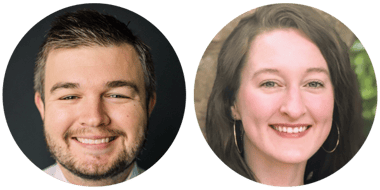 Closing Plenary Session | The Future of Open Science in Educational Research: an ECR Perspective
Closing Plenary Session | The Future of Open Science in Educational Research: an ECR Perspective
Jesse Fleming and Sarah Wilson
For this session, we discussed the transformative power of open science, the barriers we must overcome as a field, and what each researcher can do today to improve the credibility and transparency of science. We also discussed major takeaways from the conference aimed at leaving each participant with a renewed enthusiasm to implement open science within the field of education.
Group discussions designed to reach consensus on a topic or generate a plan of action.
Hands on lessons that left attendees with resources to use and apply.
Participants worked together on a defined task for one to three hours (letter writing campaigns, creating syllabi, designing studies, and proposals).
Presentations on a topic in five minutes or less.


6218 Georgia Avenue NW, Suite #1, Unit 3189
Washington, DC 20011
Email: contact@cos.io

Unless otherwise noted, this site is licensed under a Creative Commons Attribution 4.0 International (CC BY 4.0) License.
Responsible stewards of your support
COS has earned top recognition from Charity Navigator and Candid (formerly GuideStar) for our financial transparency and accountability to our mission. COS and the OSF were also awarded SOC2 accreditation in 2023 after an independent assessment of our security and procedures by the American Institute of CPAs (AICPA).
We invite all of our sponsors, partners, and members of the community to learn more about how our organization operates, our impact, our financial performance, and our nonprofit status.